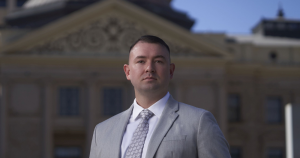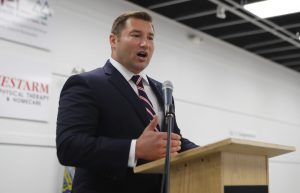Negotiated Rulemaking, often shortened to ‘NegReg,’ is a formal process used by the U.S. Department of Education to develop new regulations for higher education programs under Title IV of the Higher Education Act of 1965 (HEA). Unlike traditional rulemaking, where the Department drafts regulations internally before soliciting public comment, NegReg convenes representatives from affected stakeholder groups to negotiate the actual language of proposed rules before they are officially published. These committees, composed of students, institutions, state officials, advocacy groups, and other sector representatives, work toward consensus-based solutions on regulatory issues that shape federal student aid, accountability, and program eligibility. The intent is to make policy formation more transparent, inclusive, and grounded in the realities of those directly affected by the rules.
On July 4, 2025, President Trump signed into law the One Big Beautiful Bill Act (Pub. L. 119–21), which introduced significant reforms to Title IV, Higher Education Act (HEA) programs, including major updates to the Federal student loan system. In response, Congress directed the Department of Education to undertake comprehensive rulemaking to align federal regulations with these statutory changes. To fulfill this directive, the Department initiated two Negotiated Rulemaking (NegReg) committees prior to issuing its Proposed Rule in the Federal Register: the Reimagining and Improving Student Education (RISE) Committee; and the Accountability in Higher Education and Access through Demand-driven Workforce Pell (AHEAD) Committee.
With the RISE Committee having completed its two negotiation sessions earlier in fall 2025, attention now turns to the AHEAD Committee, which will convene in December 2025 and January 2026 to address the next phase of the Department’s negotiated rulemaking. The AHEAD Committee will meet in person for two week-long sessions (December 8–12, 2025, and January 5–9, 2026, from 9:00 a.m. to 4:00 p.m. each day, Eastern Time).
These sessions, open to the public both in person and via livestream, will focus on developing consensus-based regulatory proposals concerning institutional and program accountability, the establishment of new Workforce Pell Grant eligibility requirements, and other Title IV provisions enacted under the OBBB. As with all NegReg proceedings, the AHEAD Committee’s goal is to reach agreement among diverse higher education constituencies before the Department issues final proposed regulations for public comment, to include veterans and active-duty members of the U.S. Armed Forces.
What if the Committee Does not Reach Consensus?
“A participant chosen by the Department is expected to represent the interests of their constituency group and to participate in the negotiations in a manner consistent with the goal of developing proposed regulations on which the committee will reach consensus, which means no member of the committee dissents from the proposed regulations.” 2025-13998 (90 FR 35261).
However, a lack of consensus does not mean the rulemaking process halts. In fact, quite the opposite. Under the Higher Education Act, if a negotiated rulemaking committee fails to reach consensus on one or more issues, the Department may proceed to draft its own proposed regulations.
In doing so, the Department considers the full record of the negotiations, including points of agreement and disagreement, to inform the regulatory text. The resulting draft regulations are then published in the Federal Register as a Notice of Proposed Rulemaking (NPRM), accompanied by an explanation of how the Department’s proposed language differs from the committee’s discussions (the “draft” language).
The public is then invited to submit written comments through the Federal eRulemaking Portal (regulations.gov), ensuring continued transparency and stakeholder participation.
Summary of the RISE Committee
The RISE Committee was tasked with negotiating new federal student loan limits under the OBBB, and reached consensus on November 6, 2025, after two weeks of intensive negotiations. The committee’s work centered on defining which graduate and professional degree programs would qualify for new federal borrowing caps set to take effect in July 2026. Under the new framework, students in graduate programs may borrow up to $100,000, while those in designated professional programs may borrow up to $200,000.
Programs Eligible for the Higher Loan Cap: Medicine (M.D.); Pharmacy (Pharm.D.); Dentistry (D.D.S. or D.M.D.); Optometry (O.D.); Law (L.L.B. or J.D.); Veterinary medicine (D.V.M.); Osteopathic medicine (D.O.); Podiatry (D.P.M., D.P. or Pod.D.); Chiropractic (D.C. or D.C.M.); Theology (M.Div. or M.H.L.); and Clinical psychology (Psy.D. or Ph.D.).
Some advocates raised concerns about the regulation’s limited scope; however, the Department intends to publish the proposed rule in the Federal Register by early 2026, effectively tightening down the wide-open faucet of unlimited federal lending that, for years, has failed to yield a meaningful return on investment for students.
Department officials argue that previous lending policies contributed to rising tuition and administrative costs (solely benefiting higher education executives), costs that were often and sadly absorbed by students rather than the institutions that raised administrative costs (salaries) to meet—and even exceed—the Department’s willingness to lend.
The new framework, they contend, represents a necessary step toward restoring fiscal responsibility to the federal student loan system while encouraging institutions to better align program costs with real-world outcomes.
What to Expect from the AHEAD Committee
AHEAD negotiators will tackle issues such as gainful employment metrics, financial value transparency, and the design of the new Workforce Pell Grant—a short-term credential program intended to connect students with high-demand careers. The committee will also debate eligibility restrictions on Pell assistance for students whose aid packages already cover their full cost of attendance or whose Student Aid Index exceeds twice the maximum Pell award.
Unlike the RISE Committee, which centered on individual borrowing limits, the AHEAD Committee will grapple with how to hold institutions accountable for student outcomes while expanding access to affordable, career-aligned education.
In other words, the Department’s magnifying glass shifts from the individual—examined during the RISE Committee—to the institution of higher education: the universities, colleges, and training providers responsible for delivering programs that justify the federal investment in student aid. During the sessions, negotiators can expect the Department and fellow stakeholders to pose key questions, including:
Accountability and Outcomes:
How should “low earnings” outcomes be measured across programs? Should thresholds vary by credential level or regional labor-market conditions?
Institutional Responsibility:
At what point should a program lose Direct Loan eligibility—after a number of consecutive years of poor outcomes, or based on a broader pattern?
Workforce Pell Eligibility:
How can the Department ensure that Workforce Pell programs approved by state governors maintain academic rigor and transferability to recognized credentials? If at all.
Equity and Access:
Should Pell Grant eligibility be restricted for students whose aid already covers full cost of attendance, and how might that affect low-income or part-time learners?
Financial Value Transparency:
What data should institutions be required to disclose to prospective students to demonstrate program value, and how will that information be verified and enforced? What source of data is reliable?
State and Accreditor Roles:
How can coordination among state regulators, workforce boards, and accreditors be strengthened to prevent duplication while maintaining oversight integrity?
These questions, among many others likely to come up, underscore the Department’s new regulatory lens, one that examines not just whether students can borrow, but whether institutions can deliver.
The outcomes of the AHEAD negotiations will likely define how accountability, affordability, and access interact in the next generation of federal higher education policy.
VEP has been selected as a negotiator for the AHEAD Committee, read our Press Release here!
About the Author:
Matthew Feehan, J.D. is a U.S. Army National Guard veteran and former infantry officer with more than a decade of combined military, legal, and federal contracting experience. A former Department of Justice Honors Law Clerk and U.S. Army Corps of Engineers Law Clerk and Operations Officer, Feehan has served across nearly every corner of the federal system—as a contractor, civil servant, and soldier—working on matters that span regulatory policy, administrative law, and complex federal procurement. His firsthand experience navigating the same statutes and rulemaking processes that govern veterans’ benefits gives his writing a uniquely practical edge.
Today, Feehan serves as a Senior Policy Advisor with the Veterans Education Project (VEP), a Board Member and Sergeant-at-Arms of Combat Veterans of America (CVA), and an independent consultant specializing in ethics, compliance, and veterans’ policy. His work explores how law and regulation collide with the lived experience of those who serve—bridging the gap between policy intent and on-the-ground impact for veterans, families, and the public institutions charged with supporting them.





Very readable and informative. Saved this for future reference.
Solid suggestions — would be great to see a downloadable checklist.